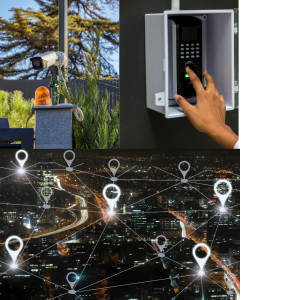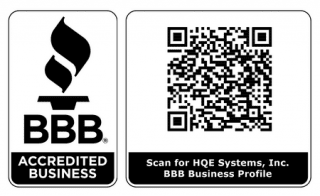Cargo Theft Up 49% in 2024: How Electronic Security is Protecting Ports and Supply Chains from Organized Crime
The Alarming Truth Behind the Cargo Theft Epidemic: Why You Should Be Concerned
Cargo theft is surging in 2024, with a staggering 49% increase that’s putting the global supply chain at risk. The logistics and port industries are especially vulnerable, as high-value goods become prime targets for organized crime. In 2023 alone, the total loss from cargo theft amounted to $694,327,811, a clear indication of the growing threat to critical infrastructure (Forbes, 2024). CargoNet’s data further underscores the urgency of this issue, reporting a 57% rise in cargo theft in 2023 compared to 2022 (CNBC, 2024).
This surge in theft poses a significant challenge for port operators, shippers, and logistics companies, all of whom are grappling with how to better secure their assets and prevent costly disruptions. As traditional methods of cargo protection fall short, cutting-edge technology is stepping up to provide enhanced security.
The Scope of Cargo Theft in 2024
 Cargo theft has become an escalating concern for the global logistics and port industries in 2024. Organized crime syndicates have become more brazen and sophisticated, increasingly targeting high-value goods stored at or moving through major seaports. This rising threat demands more advanced security measures to safeguard valuable shipments from being intercepted or stolen before reaching their final destinations.
Cargo theft has become an escalating concern for the global logistics and port industries in 2024. Organized crime syndicates have become more brazen and sophisticated, increasingly targeting high-value goods stored at or moving through major seaports. This rising threat demands more advanced security measures to safeguard valuable shipments from being intercepted or stolen before reaching their final destinations.
Several types of goods are particularly attractive to cargo thieves operating at ports. Electronics, pharmaceuticals, and luxury goods remain high on the list due to their significant resale value and ease of distribution through black market channels. Electronics, for instance, represent a significant share of stolen goods, with shipments of smartphones, laptops, and other consumer technology frequently targeted. Pharmaceuticals are also prime targets, as these items can be sold with less traceability than many other products.
Ports on the U.S. coasts, especially in California, Texas, and Florida, are among the hardest hit by cargo theft, given the volume of international shipments passing through. Major ports such as Los Angeles and Long Beach are common targets due to the sheer quantity of goods being processed. However, cargo theft is not confined to the coasts alone. As criminals expand their reach, inland logistics hubs and port facilities in cities like Louisville, Kentucky, are increasingly at risk. The sheer volume of high-value goods moving through these areas, combined with security vulnerabilities in storage yards or freight terminals, makes these regions particularly susceptible.
 Organized crime syndicates have refined their tactics, often leveraging detailed insider knowledge about port operations to pinpoint the most vulnerable and valuable shipments. These groups employ various methods to exploit gaps in security. In some cases, thieves intercept cargo containers during the night when surveillance is less robust. Other instances involve criminals infiltrating storage facilities within ports, using insider information to navigate weak security protocols.
Organized crime syndicates have refined their tactics, often leveraging detailed insider knowledge about port operations to pinpoint the most vulnerable and valuable shipments. These groups employ various methods to exploit gaps in security. In some cases, thieves intercept cargo containers during the night when surveillance is less robust. Other instances involve criminals infiltrating storage facilities within ports, using insider information to navigate weak security protocols.
One notable example occurred in March 2024, when a shipping container with $500,000 worth of electric bicycles was stolen from a Delta warehouse lot. The theft was captured on CCTV, showing how a semi-tractor backed into the lot, hooked up the container, and drove off with 150 e-bikes. Despite efforts by the warehouse operators and police to track the goods, the stolen shipment has not been recovered, underscoring the vulnerability of port-adjacent logistics facilities and the need for heightened security measures (Vancouver Sun, 2024).
The rise in cargo theft at ports not only disrupts supply chains but also damages the reputation of logistics operators and increases the overall cost of doing business. As these incidents become more frequent, port operators and companies relying on these supply chains must invest in advanced security solutions to better protect their assets and mitigate the risks of organized crime.
The Impact of Cargo Theft on the Logistics Industry
 Cargo theft doesn’t just result in stolen goods—it has widespread effects across the logistics industry, impacting everything from operational efficiency to financial stability. When cargo is stolen, the loss of goods directly affects shippers, distributors, and end customers. This disruption in the supply chain leads to increased shipping costs, delays in delivery, and significant financial strain on businesses already facing tight margins. Companies often face unexpected costs such as replacements for stolen items, additional shipping fees, and higher insurance premiums.
Cargo theft doesn’t just result in stolen goods—it has widespread effects across the logistics industry, impacting everything from operational efficiency to financial stability. When cargo is stolen, the loss of goods directly affects shippers, distributors, and end customers. This disruption in the supply chain leads to increased shipping costs, delays in delivery, and significant financial strain on businesses already facing tight margins. Companies often face unexpected costs such as replacements for stolen items, additional shipping fees, and higher insurance premiums.
The financial impact of cargo theft is staggering. In addition to the direct losses of stolen goods, businesses must also deal with the cost of delays in shipping and the operational fallout of missed deadlines. When cargo is lost or delayed, manufacturers face production slowdowns, retailers are left with empty shelves, and service providers struggle to meet customer demands. The logistical challenges caused by these incidents often require companies to shift resources and implement expensive recovery measures.
Reputational damage is another critical consequence of cargo theft. Ports, logistics hubs, and shippers rely on trust and reliability to maintain strong business relationships. When theft occurs, the confidence between shippers and their clients is eroded, and it can take years to rebuild this trust. A single theft incident can lead to a loss of customers, diminished market share, and a tarnished reputation within the logistics industry. The cumulative impact of these factors is not only financial but also strategic, as companies may be forced to change partners, rework contracts, or even lose critical business opportunities.
In today’s competitive logistics landscape, ensuring the safety and security of shipments is not just about preventing theft—it’s about protecting long-term business relationships and maintaining a competitive edge. As the logistics industry continues to grow and evolve, preventing cargo theft has become a critical aspect of maintaining smooth, efficient operations.
Cargo theft is not just a numbers game; it’s a real-world problem that has caused significant financial damage to businesses and impacted the global logistics chain. Below are case studies of notorious cargo thefts that highlight security vulnerabilities and lessons that can help businesses protect themselves against similar incidents.
$1.7 Million Cargo Theft Ring in the Southeast U.S. (2024)
 In a large-scale cargo theft ring, four men from South Florida were sentenced for stealing $1.7 million worth of computers, copper, and clothes from various locations across the Southeastern U.S., including Macon, Georgia. The stolen goods were then transported to Florida, where they were sold in underground markets. The theft operation spanned several states, and the FBI, working with local authorities, tracked and apprehended the criminals.
In a large-scale cargo theft ring, four men from South Florida were sentenced for stealing $1.7 million worth of computers, copper, and clothes from various locations across the Southeastern U.S., including Macon, Georgia. The stolen goods were then transported to Florida, where they were sold in underground markets. The theft operation spanned several states, and the FBI, working with local authorities, tracked and apprehended the criminals.
This incident underscores how organized crime syndicates can exploit vulnerabilities in supply chains, particularly when cargo is left vulnerable during transport. With multiple states involved and a wide variety of goods being targeted, it’s clear that businesses need more robust surveillance and tracking mechanisms to mitigate risks. In this case, the coordination between law enforcement agencies was critical in breaking up the ring, but earlier detection through real-time tracking and enhanced perimeter security could have potentially thwarted the operation before the goods left their original locations (The Telegraph, 2024).
$200,000 Worth of Dimes Stolen in Philadelphia (2023)
In Northeast Philadelphia, a group of thieves made off with over $200,000 worth of dimes from a cargo truck in April 2023. The criminals took advantage of a driver resting in the truck’s cab, breaking into the trailer undetected. Investigators later linked the heist to a larger organized crime group that had been responsible for similar incidents in the region.
This case highlights the risks associated with idle trucks, especially at rest areas and unsecured locations. While cargo was under minimal supervision, thieves capitalized on a lack of alarm systems and effective surveillance, illustrating the need for better protection in such environments. Businesses transporting high-value items must ensure drivers are protected, perhaps by integrating biometric access control and GPS-enabled alarm systems that can detect unauthorized access and alert authorities in real time. This could have helped prevent the theft or at least minimized the criminals’ ability to escape with the stolen goods (6ABC, 2023).
High-Value Cargo Theft: 20 Containers Stolen at Manzanillo Port, Mexico
In June 2024, thieves staged one of the most audacious cargo heists in recent memory at the Manzanillo seaport on Mexico’s Pacific coast. Armed and well-organized, they broke into a private freight dispatch yard, subdued employees, and spent hours selecting 20 containers loaded with high-value goods, including partly refined gold, silver ore, and television sets. Once the containers were loaded onto trucks, the thieves drove off and vanished with the valuable cargo. Despite investigations, none of the stolen goods have been recovered.
This incident emphasizes the sophistication and patience that modern organized crime groups possess. The criminals carefully planned the operation, taking hours to sift through containers for the most valuable items. The scale of the heist points to significant security lapses, particularly in the lack of surveillance and failure to secure entry points properly. In high-traffic, high-value locations like ports, businesses can benefit from integrating advanced surveillance systems, automated access control, and tamper-proof tracking devices on containers. A multi-layered security approach would help mitigate vulnerabilities and provide real-time alerts to deter such large-scale thefts (CBS News, 2024).
HQE Systems is a leader in providing life safety and electronic security solutions across a wide range of industries, from logistics hubs and ports to healthcare, education, and government facilities. With an extensive portfolio of cutting-edge technologies and decades of experience, HQE helps businesses and organizations secure their assets, ensure safety, and reduce operational risks in today’s increasingly complex environment.
Layered Security Solutions for All Industries No matter the industry, HQE Systems emphasizes the importance of layered security solutions. By integrating advanced surveillance, biometric access control, GPS tracking, and real-time monitoring, HQE creates comprehensive security systems that can adapt to the unique demands of any sector. From safeguarding sensitive data in healthcare settings to protecting physical assets in logistics hubs, HQE’s solutions provide around-the-clock protection.
No matter the industry, HQE Systems emphasizes the importance of layered security solutions. By integrating advanced surveillance, biometric access control, GPS tracking, and real-time monitoring, HQE creates comprehensive security systems that can adapt to the unique demands of any sector. From safeguarding sensitive data in healthcare settings to protecting physical assets in logistics hubs, HQE’s solutions provide around-the-clock protection.
For logistics hubs and ports, where cargo theft is a growing concern, HQE offers robust perimeter security systems and intelligent video analytics to monitor large areas in real-time. In industries like education and healthcare, where safety and emergency preparedness are critical, HQE integrates mass notification systems and access control to ensure that only authorized personnel can enter restricted areas, while keeping occupants informed during emergencies.
HQE Systems: Tailored Security Solutions for Every Industry
HQE Systems delivers advanced life safety and electronic security solutions customized for a diverse range of industries, including logistics hubs, ports, emergency management, and more. Our technology-driven approach integrates surveillance, alarms, real-time tracking, and mass notification systems to provide comprehensive protection across all sectors. Whether managing high-value cargo, ensuring public safety, or securing critical infrastructure, HQE’s adaptable solutions meet the unique challenges of each industry.
By focusing on customized, integrated security solutions, HQE empowers businesses to respond to both traditional and emerging threats, ensuring smooth operations and safeguarding assets. Our expertise across various sectors allows us to create resilient, scalable systems that adapt as operations grow, helping businesses stay secure and protected in an ever-evolving threat landscape.
HQE Systems’ Expertise Across Multiple Sectors
From installation to ongoing support and maintenance, HQE’s team of experts works closely with clients to ensure that their security systems operate at peak efficiency, providing reliable protection for people, assets, and operations. By integrating life safety and electronic security into every aspect of an organization’s operations, HQE empowers businesses to stay ahead of potential threats, safeguard valuable assets, and maintain business continuity across industries.
 As technology evolves, so do the security challenges faced by industries like logistics, ports, and emergency management. Emerging threats such as cyberattacks, the increasing sophistication of organized theft rings, and even the potential misuse of drones for surveillance or theft mean that businesses can no longer rely on traditional security measures alone. The future of security demands innovative, proactive solutions that stay ahead of these evolving risks.
As technology evolves, so do the security challenges faced by industries like logistics, ports, and emergency management. Emerging threats such as cyberattacks, the increasing sophistication of organized theft rings, and even the potential misuse of drones for surveillance or theft mean that businesses can no longer rely on traditional security measures alone. The future of security demands innovative, proactive solutions that stay ahead of these evolving risks.
Cybersecurity and Physical Security Integration
One of the biggest trends in security is the convergence of physical and cyber security. Industries such as logistics hubs and ports are particularly vulnerable to cyberattacks aimed at disrupting operations or gaining access to valuable assets. As the digital and physical worlds intertwine, businesses must adopt solutions that integrate both cybersecurity measures and physical security systems. This approach will ensure comprehensive protection across every layer of their operations.
The Role of AI and Machine Learning
Artificial intelligence and machine learning are becoming integral to security, enabling real-time data analysis and threat detection. For industries like emergency management, AI-driven surveillance can predict risks before they escalate, allowing for faster response times. In logistics and ports, machine learning can identify patterns of theft, ensuring early detection of suspicious activity and minimizing potential losses. As these technologies advance, they will play a critical role in preventing both physical and cyber threats.
HQE Systems: Leading the Charge in Security Innovation
At HQE Systems, we are continually innovating to meet the evolving needs of industries like logistics, ports, emergency management, and more. From advanced electronic security systems to integrated life safety solutions, our technology is designed to adapt to new threats while providing businesses with peace of mind. As we look toward the future, HQE is committed to staying ahead of the curve, ensuring that every industry is equipped to handle the security challenges of tomorrow.
By combining cutting-edge technology with industry expertise, HQE Systems will continue to provide comprehensive security solutions that keep businesses and their assets protected, no matter how threats evolve.
HQE Systems is a certified Veteran Owned Company. For more information about HQE Systems Inc. and its emergency management, electronic security, and integration solutions, please visit www.hqesystems.com.

Contact: David Ditto (Early Warning Systems Subject Matter Expert)
Email: David.Ditto@hqesystems.com
Phone Number: (843) 872-7020
____________________
HQE Systems, Inc. | HQE is a Minority-Owned Service Disabled Veteran Owned Small Business (SDVOSB) providing full solutions for: Mass Notification Systems, Electronic Security Systems, Software Development Services, Contract Support, and Prototyping Services. As a brand-agnostic solutions provider, HQE prides itself in providing the BEST solution for the project. HQE possesses over 30+ factory certifications and reseller licenses to ensure our clients receive the highest quality service at the ideal budget. HQE can provide full design, installation, integrations, upgrades, and long-term maintenance support for any size and scope project.
